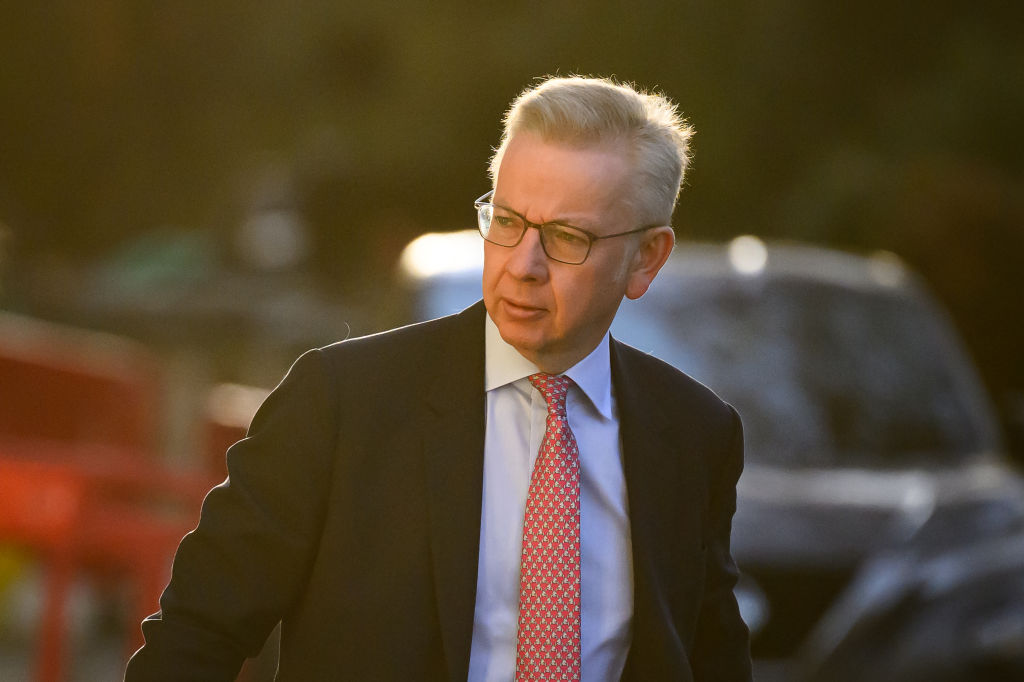When Rishi Sunak told cabinet colleagues about his decision to call a general election, Michael Gove sought to raise spirits by declaring ‘who dares, wins!’. But a great many Tory MPs have been making a different calculation: that with Labour 20 points ahead in the polls, it may be better not to dare – and just not fight the next election. This is what Gove has now ended up doing. In a letter released this evening, he’s leaving the once-safe seat of Surrey Heath to someone else and is joining a very long line of other refuseniks who are deciding not to join Sunak in the trenches.
So far, 78 MPs have said they will stand down at the election – Andrea Leadsom being the latest – so Sunak has now made history and overtaken the exodus under John Major ahead of the 1997 election. Then, 75 Tory MPs stood down. There are plenty of parallels between the two scenarios. Just as was the case in 1997, Tory MPs fear they are heading for a shellacking in the polls with many expecting to lose what were once considered be safe seats. This week, a cabinet minister told me the party would be doing well to have over 200 MPs after 4 July. The Electoral Calculus model says that current polling is pointing to just 92 Tory seats.
There is already surprise among MPs over Gove’s decision. While the Liberal Democrats have long viewed his seat as a target on a very good night for them, most thought he would hold it. Many of the Levelling Up Secretary’s colleagues had presumed he would stay on and fight. While few thought he in the event of a Tory election defeat would have another stab at the leadership, they did think he would play an important behind the scenes role in trying to stop parts of the Tory right from gaining control of the party. It was just this month that Gove responded to the local election results at Cabinet by urging colleagues not to take to ‘comfort eating’ in response by moving to very right wing policies.
As one departing MP puts it: ‘It’s the end of the era. A lot of us cannot face a decade of opposition or the party jumping right’. Experienced MPs to so far announce their departure include former cabinet ministers Sajid Javid, Ben Wallace, Alok Sharma and Nadhim Zahawi as well as current ones Alister Jack and Chris Heaton-Harris. Other notable departees include the former prime minister Theresa May and young MPs from the 2019 intake such as Dehenna Davison. Some of this is to do with electoral maths – MPs who believe their seat is a goner would rather exit now on their own terms. Some simply think the job is too stressful and open to abuse for the pay on offer. They want to pursue more lucrative careers given the opportunities of high office are fewer in opposition.
There’s also another factor at play: Labour’s proposed ban on second jobs. Keir Starmer promised to ban second jobs for MPs three years ago, saying there would be ‘very limited exceptions’. This has deepened the Tory exodus. ‘I have years of cabinet experience and I’d like to stay in parliament to be of use,’ says one former minister. ‘But the ban on second jobs decided it for me.’ The Tories worry this is costing them the MPs smart and experienced enough to find work outside.
For now though, it is just adding to a sense that change is coming – with even many Tory MPs working on the basis there will be a change of government come July. Gove has become the face of the Tory exodus, and there could be very many more to come.
Watch more analysis from Katy Balls on Spectator TV:








Comments